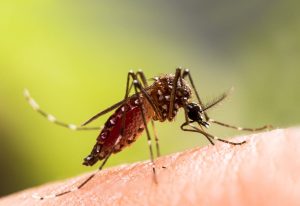I MADE it two years and one day living in New York City before crying for the first time in public. I cry a lot by most peoples’ standards for a man, but I generally do everything I can to hold my emotions in when I’m around other people. Because I don’t like when others are able to tell that I’m sad. Because I have a strange fear of tearing up in public.
Probably in part, because I am a man.
****
I had just finished dinner and said goodbye and safe travels to my mom and sister, who were in town visiting for a long weekend when my phone buzzed. I pulled it out of my pocket to read an entry to a group text thread where one of my friends had written, “I guess there isn’t going to be a second Mrs. Doubtfire…”
“Oh f**k,” I thought. “It happened.
“Robin Williams is dead.”
I typed his name into my browser and discovered that he was found dead earlier today. My guess was either suicide or an overdose. It’s been reported that it is the former. Williams battled addiction and depression for much longer than I’ve been alive, and one of them (though the two were surely related in some ways) finally got him.
I walked the rest of the block to my Flatiron train stop and descended the stairs in a daze. I sat down on a bench and opened Twitter to find a slew of messages about Williams and how people are going to miss him. I came upon Anna Kendrick’s tweet: “O Captain! My Captain! Rise up and hear the bells! Rise up, for you the flag is flung, for you the bugle trills.” I could see clearly in my mind’s eye Williams reciting poetry in Dead Poets Society, and that’s when the tears came. My head was bowed as I scrolled through my phone, and a couple tears dribbled into my sunglasses. I felt a crushing sadness, and I didn’t know what to do. I pulled out my handkerchief, dabbed my eyes, and sent an email to my editor that read “I’ll write something about Robin Williams. And I’ll have it to you tonight.” I didn’t know what I would write, but Robin Williams did a lot for me in the way that Elliott Smith did a lot for singers who battled depression.
So here I am, going off the notes I scribbled during my 20-minute commute.
****
I’ll start with where my adoration for Robin Williams began. When I was very young, I watched Hook. Then I watched it again and again and I became obsessed. I still love the film and watch it at least once every year. I wouldn’t understand the nuances of the plot until I was older, of course, and when I did reach that point, my love for Williams was already very solidified, and I had begun to appreciate the way he occasionally gravitated toward serious roles that dealt with very tough and occasionally insurmountable emotional issues. Nobody in the world has better toed the line of being a fantastic writer, impressionist, and stand-up comedian while also spending time as a dominant dramatic actor. From Hook, I moved on to Aladdin, Mrs. Doubtfire, Jack, and Jumanji, among so many others. (Sh*t, I’ve even seen every episode of his sitcom The Crazy Ones that aired last season.)
One evening, shortly after my family had purchased our first satellite dish, a gigantic black thing that took up about a third of our back yard, I was flipping through the channels and I landed on Williams performing standup. My parents were strict about vulgarity to the point that I wasn’t permitted to watch The Simpsons, so after about three seconds of this stand-up I knew for sure that it was forbidden, but also that I didn’t care because even though I didn’t really understand his set, Williams’ hilarity and warmth were palpable. I laughed and laughed.
What intrigued me more than anything was that this guy was doing stuff like saying the eff-word a whole lot in a rapid, erratic manner (like somebody on uppers, I’d later realize), but was also great at acting like an old female nanny, or being a child trapped in a grown man’s body, or voicing a f**king blue cartoon genie with a really weird haircut. All, apparently, to reach anybody he could, and to make them laugh. There was a take away in everything he touched, in his comedic and more serious roles— Williams did nothing just for the hell of it.
It would be years until I found out about Williams’ struggles. This discovery occurred somewhere during the time I was discovering that laughter—your own or other people’s—is the absolute best way to work against your own sadness and depression. That laughter can drive away a darkness that neither you nor anybody else in the entire world can completely understand or make peace with.
But most people aren’t born funny. And funny does not equal happy. And today’s news reiterates this idea– that some of the funniest people you will ever meet are also the saddest.
So many wildly successful comedians are so great at making you laugh because they look at the world in a way that skews very differently from others. They’re observant and tuned in to what David Foster Wallace used to refer to as a “stomach level sadness” that they are patently unable to escape. They think on a different analytical level that yields chances at laughter, but takes a lot out of them. They see a rough world and they try to combat it with humor. And real, lasting happiness is so extremely hard for them to find and hold on to—despite the fact that the more successful they become, the more people expect them to simply be happy.
(Don’t think for a second that there aren’t thousands of people out there right now who don’t understand clinical depression and are seriously wondering why someone who had so much money and fame would want to end his own life.)
So in the process, comics and actors and artists do what they can to try and make other people happy through laughter. In a way, it’s almost like their happiness comes vicariously, and they keep trying to make other people laugh for as long as they can—until the joke isn’t funny anymore.
I’m going to miss Robin Williams as much as I’ve ever missed anybody I have never met. He has contributed so much positivity to the world through comedy and art. He did what he could to keep us laughing for as long as he could.
But I also understand why he ultimately decided to go before nature called.
And that level of empathy scares the living day out of me.
****
I square off with depression pretty much every day. It’s omnipresent, and I never know when it’s going to decide to show up and work really hard on my nerves for a while. I’ve never thought of hurting myself, but there have been days when I have thought things like, “Maybe dying wouldn’t really be so bad, long as I didn’t have to feel like this anymore or ever again.” I have felt a general apathy for life, and I have sometimes worried that things weren’t going to get better.
But they’ve always gotten better, they always can get better, and they always will as long as you don’t give up; as long as you get the help you need; as long as you let people known how you’re feeling—no matter the toll you think it might take on your dignity.
Because if you’re depressed, there are always people there who want to help you. People who love you. People who want you alive and in their lives. People who may crumble at their very own psychological and emotional foundation if you were to take your own life without having trusted them enough to confide in them.
Your depression is going to try and convince you that this isn’t the case, but I promise you that you are loved, you are not alone, and you never, ever, ever will be.
When you’re feeling so far down and despondent, it is absolutely imperative that you let it be known. There are people who can and will help. We never talk about this as men. We’re told it’s not in our nature. But you just have to give people the chance to help, especially when you feel like there is nothing to lose.
And always know, to take a quintessential line from Williams as Sean Maguire in Good Will Hunting, that depression is not your fault. It’s not your fault. It’s not your fault. It’s not your fault. It’s. Not. Your. Fault.
****
The tears kept flowing intermittently as I sat on the M Train toward Brooklyn, writing in my notebook. During my scribbling, I felt a light touch on my shoulder. I looked up to see a man I had never seen before in my entire life.
“Are you OK?” he asked.
I wiped my face with my handkerchief. “Yeah, oh, yeah. I’ll be fine. This is going to seem ridiculous, but I’m upset about Robin Williams. He is a hero of mine and he died today, if you haven’t heard. They say it was suicide.”
“Oh s**t. Oh, s**t. That’s a f**king shame. He is…he is great.”
“Yeah. Yeah he is. And thank you, so much, for what you just did. Thank you.”
“No need to thank me. I just wanted to see if you needed any help.”
We shook hands and then he sat down next to me. We rode in silence to my stop, where I thanked him again and began my walk home.


-300x200.jpeg)









-300x241.jpeg)




